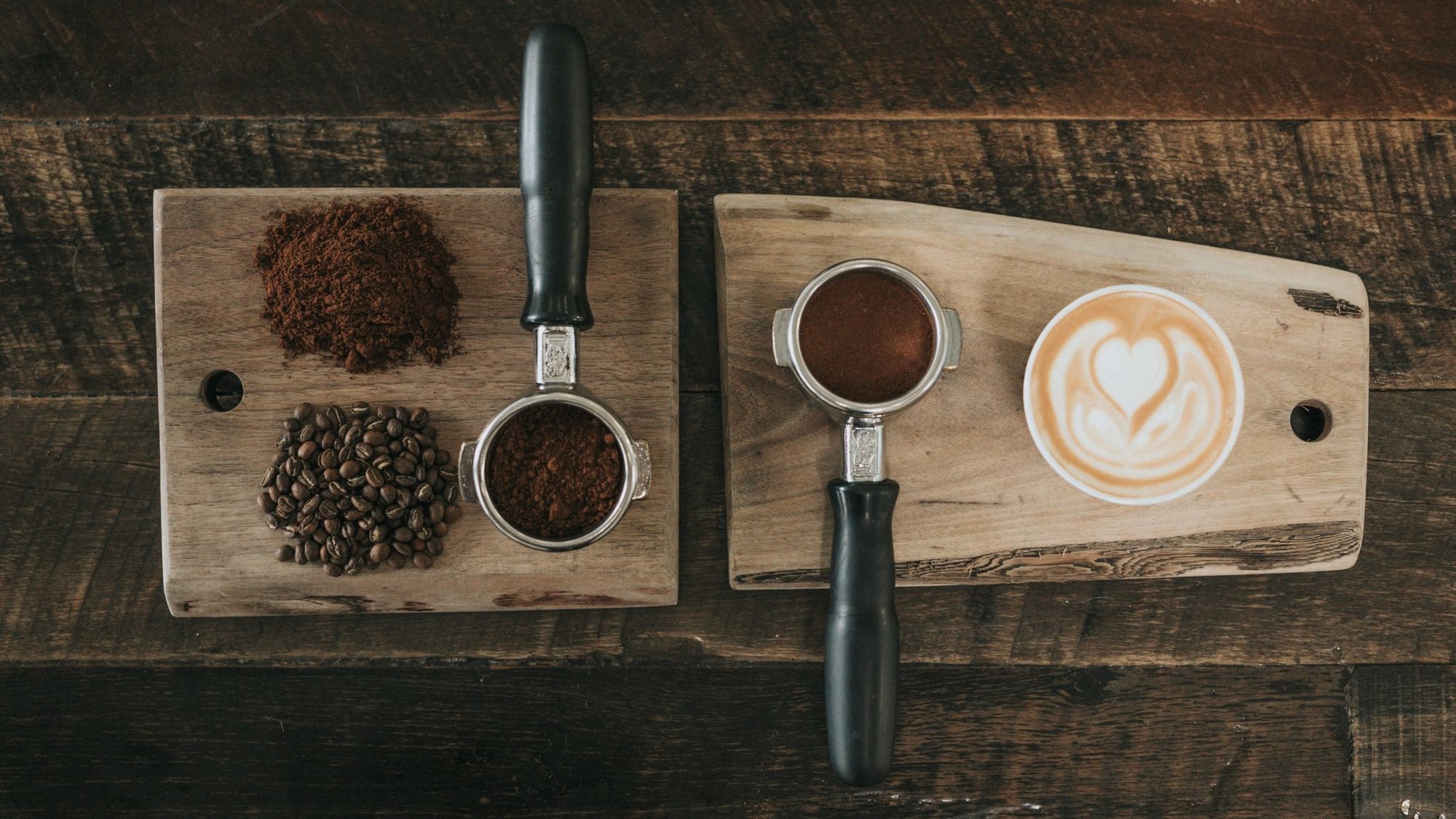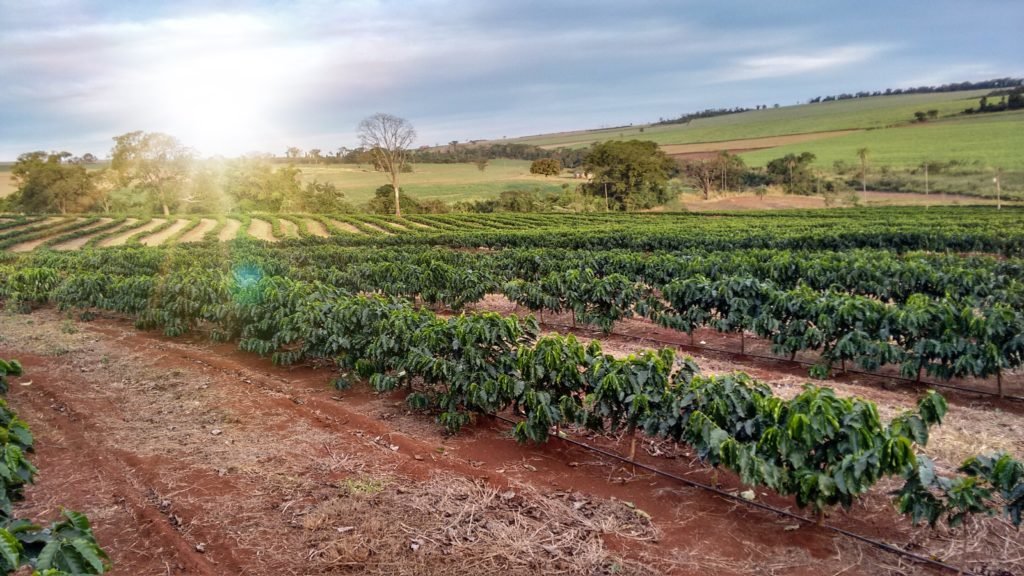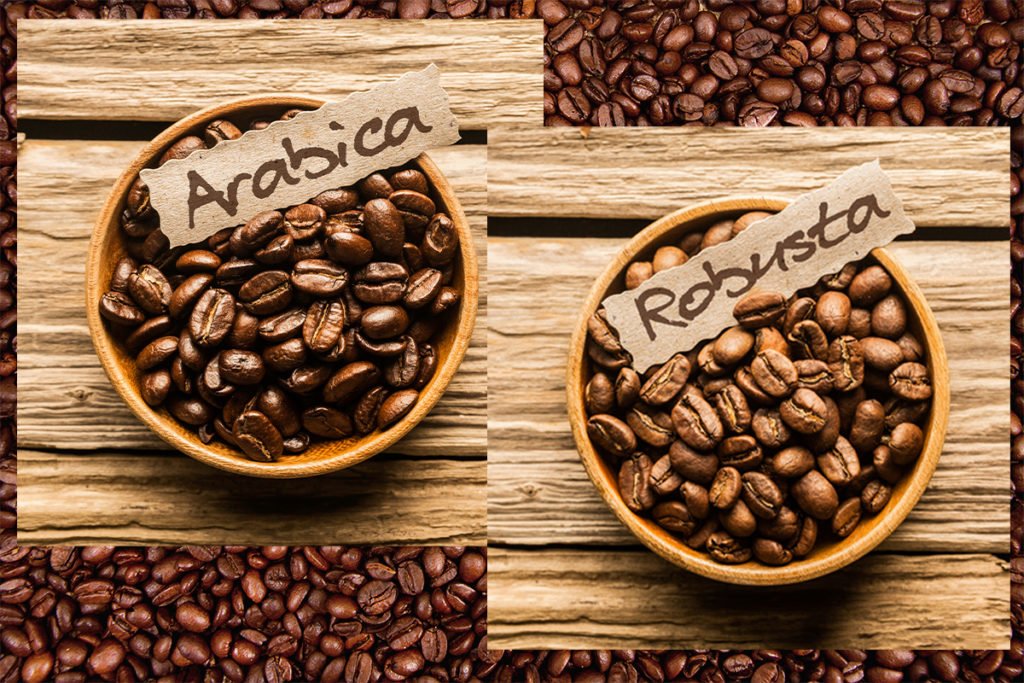
Photo courtesy of Black Rifle Coffee Company.
There are numerous types of coffee available. We usually think about this in terms of roasts, blends, and maybe even country of origin. There are espresso blends and breakfast blends, light roasts and dark roasts, 100 percent Colombian and Sumatra.
But at the most basic level, there are also a variety of coffee beans. The two that are most commonly cultivated for commercial use are Arabica and Robusta. But do you know the difference?
Growing Conditions
The two species of plants have a similar germination process, taking three to four years before they flower and produce fruit.

Robusta coffee plants are more, ahem, robust and insect resistant — they’re easier to grow and are more tolerant to changes in weather patterns. They also grow at lower altitudes. Robusta beans are grown almost exclusively in Africa and Indonesia, with Vietnam being a primary producer.
Arabica beans are grown at higher altitudes, yield less fruit per plant than Robusta, and generally don’t grow as tall. Arabica beans are primarily grown in Central and South America; Colombia only produces Arabica beans.
Price & Appearance
Due to the differences in their growth patterns and because Arabica beans are generally seen as superior to Robusta, Arabica beans are also more expensive. While that price is variable, Arabica beans are currently about $1.20 more per kilogram than Robusta on the commodities market.
It’s technically possible to differentiate between Robusta and Arabica beans simply by their shape. Arabica beans are elongated, and Robusta beans are more round.

Taste & Caffeine Content
Perhaps the most important difference between Robusta and Arabica beans is their taste and caffeine content — why else drink coffee except for that delicious boost of energy?
Arabica beans have a fruitier flavor with higher sugar and acidity levels. Robusta tends to be nuttier and more bitter. When it comes to caffeine content, however, Robusta takes the lead. At 2.7 percent, Robusta contains nearly double the 1.5 percent caffeine of Arabica.
Given this variance in levels of sugars and caffeine, it makes sense that the chemical makeup of the beans react differently in the roasting process, therefore yielding different flavors.

While consumers tend to prefer the flavor of Arabica beans, Robusta is often used in blends, especially for espresso, as it is said to boost the caffeine content, the crema, and also provide a deeper flavor.
Despite Robusta being seen as a generally inferior bean to Arabica, not all beans within their given category are created equal. High-quality Robusta beans can taste better — and cost more — than lower quality Arabica beans.
While Arabica seems to be the preferred bean of most coffee consumers, making up 70 percent of the world’s bean production, most grocery-store coffees are a blend of the two.

Katie McCarthy is the managing editor for Coffee or Die Magazine. Her career in journalism began at the Columbus (Georgia) Ledger-Enquirer in 2008, where she learned to navigate the newsroom as a features reporter, copy editor, page designer, and online producer; prior to joining Coffee or Die, she worked for Outdoor Sportsman Group as an editor for Guns & Ammo magazine and their Special Interest Publications division. Katie currently lives in Indiana with her husband and two daughters.
BRCC and Bad Moon Print Press team up for an exclusive, limited-edition T-shirt design!
BRCC partners with Team Room Design for an exclusive T-shirt release!
Thirty Seconds Out has partnered with BRCC for an exclusive shirt design invoking the God of Winter.
Lucas O'Hara of Grizzly Forge has teamed up with BRCC for a badass, exclusive Shirt Club T-shirt design featuring his most popular knife and tiomahawk.
Coffee or Die sits down with one of the graphic designers behind Black Rifle Coffee's signature look and vibe.
Biden will award the Medal of Honor to a Vietnam War Army helicopter pilot who risked his life to save a reconnaissance team from almost certain death.
Ever wonder how much Jack Mandaville would f*ck sh*t up if he went back in time? The American Revolution didn't even see him coming.
A nearly 200-year-old West Point time capsule that at first appeared to yield little more than dust contains hidden treasure, the US Military Academy said.












